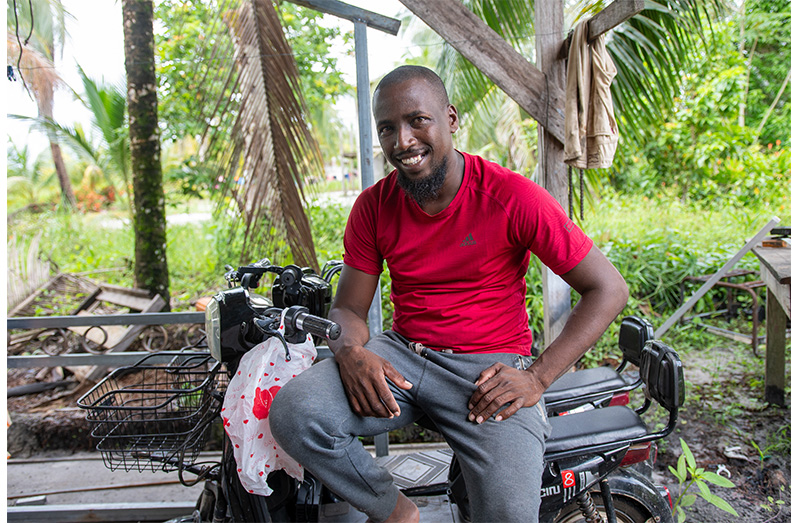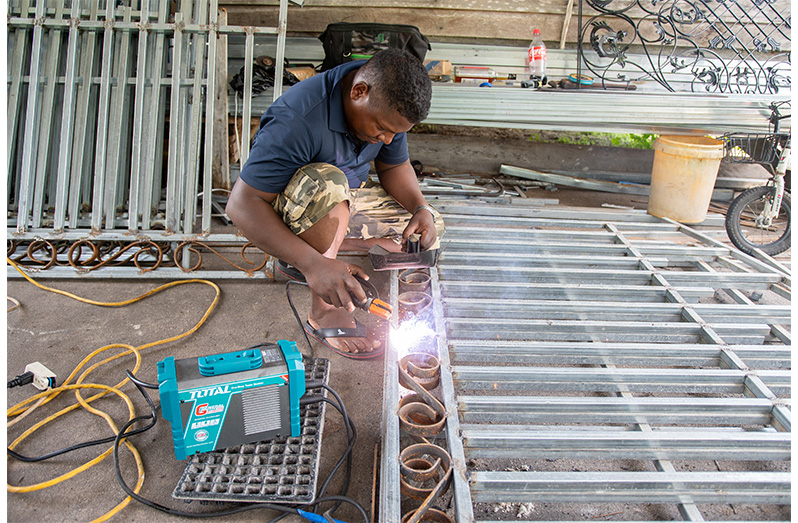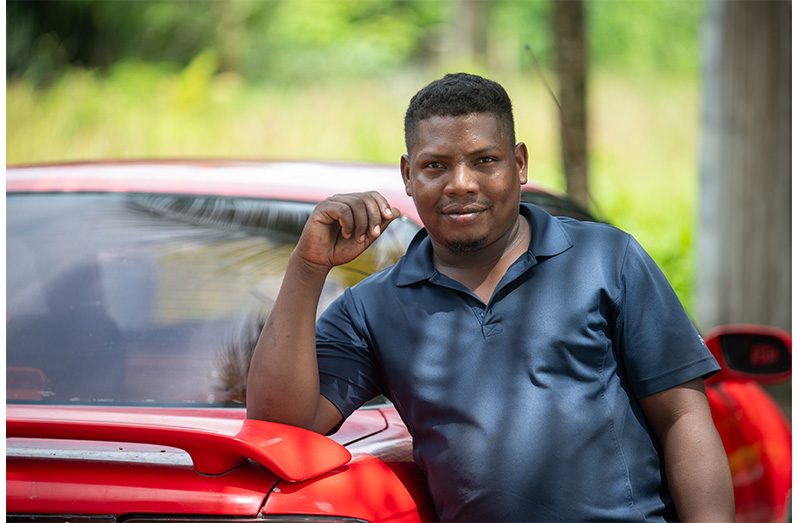How Laluni’s Youth Are Building Beyond Agriculture
DEVELOPMENT across multiple sectors is often seen as a hallmark of a growing nation or community; and Laluni is a shining example. Long known as an agricultural hub, this community is now nurturing growth beyond farming. Young residents are trading excavators and planting tools for welding torches and business plans. This week, Pepperpot Magazine sat down with two such individuals, Rondell Peters and Robin Pellew, who went into business for themselves. Though the work can be unpredictable, they say it’s steady and on the rise. The duo share their insights on entrepreneurship, the shift beyond agriculture, and what development looks like from their corner of the country.

When Rondell Peters moved to Laluni more than a decade ago, he remembers the community being very different from what it is today. Originally from the village of Non Pariel, when Rondell came to Laluni to start a family of his own, he remembers Laluni as a small farming community, lacking water and with just a handful of homes scattered throughout the village. As he shared, “From 2015, when I came to Laluni to now, it has developed a lot. We have more houses now; more people are building their own homes now. I think the village might even have more people now too,” he said.
Since then, Laluni has seen a gradual overhaul. Today, the community is a captivating blend of modern homes and vibrant farmlands. According to Rondell, the biggest challenge the people of the community faced was access to water, with villagers having to travel to nearby creeks or, for some, to natural springs. As Rondell shared, “The early days in Laluni were tough. The hardest part for me was the water situation. When we first came, we had to fetch water from the creek that is a little up the road from where we live. But now we have a water system, we have had it for around six years.”
Rondell is among a growing population of tradesmen in Laluni. After learning to weld at a former job, Rondell developed his skills and returned to Laluni to start working for the community, giving back to the new homes being built across the community. “I have been doing welding and construction for five years. I trained to learn welding, and after that, I learnt construction. Before that I used to work with people. I started working on my own to get more money for myself and my family. Working with people, I did not earn much. I want the independence,” he said.
Most days, Rondell says there is plenty of work happening in the community, with almost all of his earnings coming from within Laluni. He explained that with housing and infrastructure happening more than ever in the community, jobs like welding and construction are more needed and relevant than ever before. “Work in the community is good most times. Sometimes it is rough and sometimes it is smooth. But most of the work I do comes from the community. Most of what I do is in the village. More people are building houses in Laluni, and so we get more work,” he said.

Fellow welder and longtime Laluni resident, Robin Pellew, shares similar sentiments. Robin came to the community after meeting his now wife and getting married. Reflecting on his journey into the community, Robin stated, “I moved to Laluni a little over seven years ago after meeting my wife. I met my wife on the East Coast, where I am from, and she is from here, Laluni. I knew about Laluni before I came here to live. I used to visit the community, but I did not know I would come here to live. But I did know that at some point I had to leave my mother’s house and I ended up coming to Laluni,” he said.
But starting from scratch in Laluni years ago was no easy task. As Robin detailed, hurdles with water took a toll on many of the villagers. Without access to potable water, villagers faced challenging routines for showering, washing clothes, and obtaining water to drink, which made opening a business even more difficult. Today, the community is equipped with a state-of-the-art water system, while the neighbouring creek now serves as a hangout spot for friends on the weekends or as a playground for the community’s children.
Today, Robin works alongside Rondell tending to all the welding and construction needs of the community. Although growing, Robin expressed that job and entrepreneur opportunities in the community still have a long way to go and are poised for massive development. “Work in the community does not come every day. It is not every day that somebody has a gate or a fence to make or fix. But we do get work, like right now I am working on a fence.” He further shared, “I know that more houses are being built in Laluni because we have more people moving in. And I know in time to come Laluni will develop more, because things are happening around us like the Silica City being built not too far from here.”
Laluni thrives not only because of government intervention and strong leadership, but also due to the unwavering support of its ambitious people. Both Rondell and Robin express pride and happiness in being part of the welding and construction field — industries they view as essential to the community’s growth. They are excited about the direction it’s heading and the opportunities it holds for the future.












